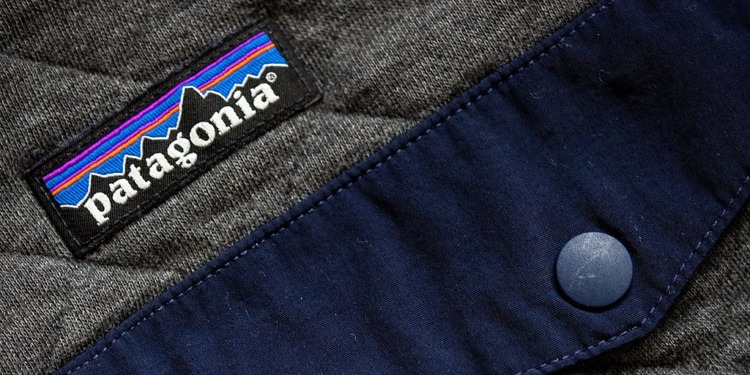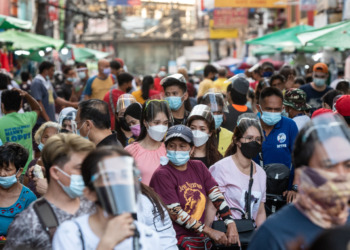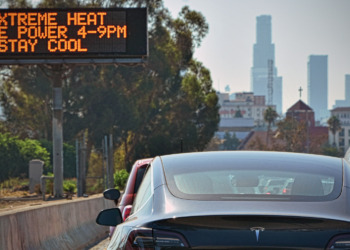“I never wanted to be a businessman. I started as a craftsman, making climbing gear for my friends and myself, then got into apparel,” the founder of Patagonia Yvon Chouinard explains how he started the company in 1973.
Today, his firm is worth $3 billion, according to the New York Times.
Chouinard announced on Wednesday that he is giving away the outdoor apparel business in an effort to tackle the environmental crisis and climate change.
Hey, friends, we just gave our company to planet Earth. OK, it’s more nuanced than that, but we’re closed today to celebrate this new plan to save our one and only home. We’ll be back online tomorrow.https://t.co/fvRFDgOzVZ
— Patagonia (@patagonia) September 14, 2022
In a letter published on Patagonia’s website, Chouinard stated that the decision to donate is the most recent development in the company’s long-running experiment in ethical business. Throughout his five-decade career, Chouinard’s strategy involved connecting his company to environmental conservation and political activity.
Patagonia continues to make products using fewer toxic components that harm the environment as well as to donate 1% of profits, primarily to local environmental NGOs.
Related articles: Tesla Removed From S&P 500 ESG Index, Musk: “ESG Is a Scam” | A Stitch in Time – The Patagonia Principle
In 2015, the business sued former President Donald Trump after denouncing him and other members of his administration for weakening protections for public lands.
It also modified its mission statement in 2018 to read: “We’re in business to save our home planet.”
More recently, after popular Wyoming ski resort owners sponsored a fundraiser with Rep. Marjorie Taylor Greene (Ga.) and other Republicans who support Trump, Patagonia declared it would no longer sell its goods there in 2021.
The decision to donate the company is thus far from being Chouinard’s first or only environmental statement.
In his letter announcing the donation, he underlined the drawbacks of either selling Patagonia and donating the money, or going public.
By selling, Chouinard says there would be no guarantee that the new owner would preserve the business’s beliefs or ensure that all of the employees would keep their positions.
Making the company public, on the other hand, would have been a “disaster,” Chouinard asserts, explaining that public firms, even those with the best of intentions, face too much pressure to prioritise short-term profit above long-term vitality and accountability.
“Truth be told, there were no good options available. So, we created our own,” Chouinard writes in the letter.
Instead of “going public,” they referred to the move as “going purpose,” saying that they would utilise the money Patagonia makes to safeguard the source of all wealth rather than taking value from nature and turning it into more wealth for investors.
“If we have any hope of a thriving planet, much less a business, it is going to take all of us doing what we can with the resources we have. This is what we can do,” said the founder.
How it works
The Patagonia Purpose Trust, established to preserve the company’s ideals, gets 100% of the company’s voting stock, while the Holdfast Collective, a nonprofit organisation devoted to addressing the environmental crisis and protecting nature, receives 100% of the company’s nonvoting stock.
Patagonia will provide the financing; each year, a dividend will be paid out from the profits after reinvesting in the company to aid in the crisis.
BREAKING: Patagonia founder gives away the $3 billion company to a pair of trusts, with a mandate to give all profits (~$100 million/year) to fight the climate crisis.
This is a real game-changer, raising the bar on what a socially conscious business can look like.
— Tristan Snell (@TristanSnell) September 14, 2022
“It’s been nearly 50 years since we began our experiment in responsible business, and we are just getting started. If we have any hope of a thriving planet — much less a thriving business — 50 years from now, it is going to take all of us doing what we can with the resources we have. This is another way we’ve found to do our part,” Chouinard concludes at the end of his letter.
Editor’s Note: The opinions expressed here by the authors are their own, not those of Impakter.com — In the Featured Photo: Patagonia logo on Patagonia’s clothing. Featured Photo Credit: Wikimedia Commons.










